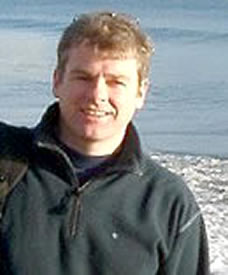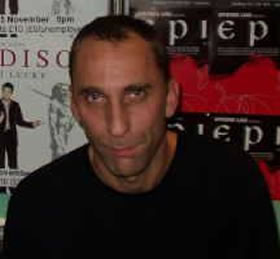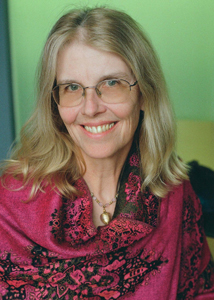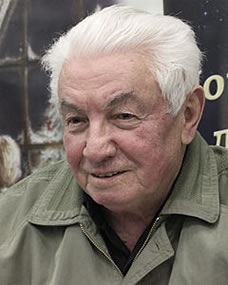De Engelse schrijver Mark Haddon werd geboren op 26 september 1962 in Northampton. Zie ook mijn blog van 26 september 2010
Uit: The Curious Incident of the Dog in the Night-Time
„My name is Christopher John Francis Boone. I know all the countries of the world and their capital cities and every prime number up to 7,057.
Eight years ago, when I first met Siobhan, she showed me this picture
[sad face]
and I knew that it meant ‘sad,’ which is what I felt when I found the dead dog.
Then she showed me this picture
[smiley face]
and I knew that it meant ‘happy’, like when I’m reading about the Apollo space missions, or when I am still awake at 3 am or 4 am in the morning and I can walk up and down the street and pretend that I am the only person in the whole world.
Then she drew some other pictures
[various happy, sad, confused, surprised faces]
but I was unable to say what these meant.
I got Siobhan to draw lots of these faces and then write down next to them exactly what they meant. I kept the piece of paper in my pocket and took it out when I didn’t understand what someone was saying. But it was very difficult to decide which of the diagrams was most like the face they were making because people’s faces move very quickly.
When I told Siobhan that I was doing this, she got out a pencil and another piece of paper and said it probably made people feel very
[confused face]
and then she laughed. So I tore the original piece of paper up and threw it away. And Siobhan apologised. And now if I don’t know what someone is saying I ask them what they mean or I walk away.“

Mark Haddon (Northampton, 26 september 1962)
De Engelse schrijver, criticus en columnist William Self werd geboren in Londen op 26 september 1961. Zie ook mijn blog van 26 september 2007 en ook mijn blog van 26 september 2008. en ook mijn blog van 26 september 2009 en ook mijn blog van 26 september 2010.
Uit: The Book of Dave
„Carl remembered how this ground had been in buddout, each rip mounded with a mixture of moto dung, seaweed, birdshit and roof straw. The motos had deftly laid their own fresh dung, but the other ingredients had to be dug from the byres, scraped from the rocks and gathered from the shore by the older girls and opares.
Next the mummies laboriously dragged truckle after truckle of the mixture up from the manor, before spreading and digging it into the earth with their mattocks. There were no wheels on Ham – save for symbols of them – and therefore no cars or vans either, so the Hamsterwomen tilled the long rips themselves – a team of six yoked to the island’s sole plough, with its heavy irony share. Now the ripening wheatie stood as high as his knees, and it looked as if it would be a good crop this year – not that Carl would necessarily be there to see the mummies grind it under the autumn foglamp, their bare breasts nuzzling the hot stone of their querns as they bent sweatily to the graft.
– Ware, guv, said Billi Brudi, catching Carl’s eye as they reached the linchet bordering the next rip and together stepped over it.
– Nu´ Lundun, Carl replied.
– Ware, guv, Sam Brudi chipped in – and his brother Billi chimed up: – Nu´ Lundun.
Then Gari Edduns uttered the salutation, and Peet Bulluk made the response – and so it went along the line. Between them the nine lads represented all the six families of Ham, the Brudis, Funches, Edduns, Bulluks, Ridmuns and De´vu´shes. Good, solid Ingish names – all from the Book, all established on Ham from time out of mind, as rooted as smoothbark and crinkleleaf.“

William Self (Londen, 26 september 1961)
De Amerikaanse schrijfster Jane Smiley werd geboren op 26 september 1949 in Los Angeles. Zie ook mijn blog van 26 september 2008 en ook mijn blog van 26 september 2009 en ook mijn blog van 26 september 2010
Uit: Charles Dickens: A Life
„Charles Dickens was a public man and a famous man, and he assumed both of these slightly different roles in his early twenties. His first sketch, “A Dinner at Poplar Walk,” was published in the Monthly Magazine in December 1833. Dickens, born on February 7, 1812, was only twenty-one, but because of his work as a parliamentary reporter (he had taught himself shorthand and was able to take down speeches word for word), he was already familiar with seeing his name in print. Nevertheless, he related later that “I walked down to Westminster Hall, and turned into it for half an hour, because my eyes were so dimmed with joy and pride, that they could not bear the street, and were not fit to be seen there.” Further sketches published in monthly and weekly magazines over the following months attracted considerable notice, and when Sketches by Boz appeared in volume form in February and December 1836, they were well reviewed. What everyone, including Dickens himself, considered especially remarkable was their breadth of scope, and in particular the variety of lower-class characters and scenes depicted, perhaps a first in English literature. One reviewer called them “a perfect picture of the morals, manners, and habits of a great portion of English Society.”
At only twenty-four, Dickens found himself in an advantageous authorial position—he was invited to contribute the text for a series of sporting engravings to be published by the firm of Chapman and Hall. They offered Dickens £14 per month (it is impossible to know exactly what this would be equivalent to in modern dollars, but it is useful to multiply any Dickensian sum by 35, which would make his fee about $500).”

Jane Smiley (Los Angeles, 26 september 1949)
De Russische schrijver en dissident Vladimir Nikolajevitsj Vojnovitsj werd geboren in Doesjanbe op 26 september 1932. Zie ook mijn blog van 26 september 2008 en ook mijn blog van 26 september 2009 en ook mijn blog van 26 september 2010
Uit: Die denkwürdigen Abenteuer des Soldaten Iwan Tschonkin (Vertaald door Alexander Kaempfe)
“Es verging einige Zeit. Njura kam zu sich. Die Sonne brannte ihr auf den Rücken. Es roch nach trockener Erde und Mist. Irgendwo zwitscherten Sperlinge und gackerten Hühner. Das Leben nahm weiter seinen Lauf. Njura öffnete die Augen und sah unter sich die klumpige Erde.
»Warum liege ich hier eigentlich herum?« dachte sie ratlos, und da fiel ihr der eiserne Vogel wieder ein.
Njura war ein gebildetes Mädchen. Manchmal las sie das »Notizbuch des Agitators«, das Parteistellenleiter Kilin abonniert hatte. Im »Notizbuch« hieß es klipp und klar, daß jeglicher Aberglaube zum Erbe der finsteren Vergangenheit gehöre und folglich auszumerzen sei. Diesen Gedanken hielt Njura für durchaus zutreffend.
Njura wandte den Kopf nach rechts und sah die Außentreppe ihres Hauses sowie den Eber Borjka, der wieder dabei war, die Erde umzuwühlen. Daran war nichts Übernatürliches. Borjka ging dieser Beschäftigung regelmäßig nach, wenn er einen passenden Ort dafür fand. Fand er ihn nicht, tat er dasselbe am unpassenden Ort. Njura drehte den Kopf ein Stück weiter und sah den klaren blauen Himmel und die blendend gelbe Sonne.
Kühner geworden wandte Njura den Kopf nach links und stürzte gleich wieder, mit dem Gesicht nach vorn, zu Boden. Der entsetzliche Vogel war leibhaftig da. Er stand unweit von Njuras Gemüsegarten auf der Erde und hielt seine großen grünen Flügel gespreizt.”

Vladimir Vojnovitsj (Doesjanbe, 26 september 1932)
Zie voor onderstaande schrijvers ook mijn blog van 26 september 2010.
De Nigeriaanse schrijver Cyprian Ekwensi werd op 26 september 1921 in Nigeria geboren in Minna. Zie ook mijn blog van 26 september 2006 en ook mijn blog van 26 september 2009.
De Oostenrijkse schrijver Peter Turrini werd geboren op 26. September 1944 in St. Margarethen im Lavanttal. Zie ook mijn blog van 26 september 2009.
De Engels schrijver, dichter en germanist Edwin Keppel Bennett werd geboren op 26 september 1887 in Wareham, Dorset.
De Australische dichter en schrijver Joseph Furphy werd geboren op 26 september 1843 in Yering, een voorstad van Melbourne.
